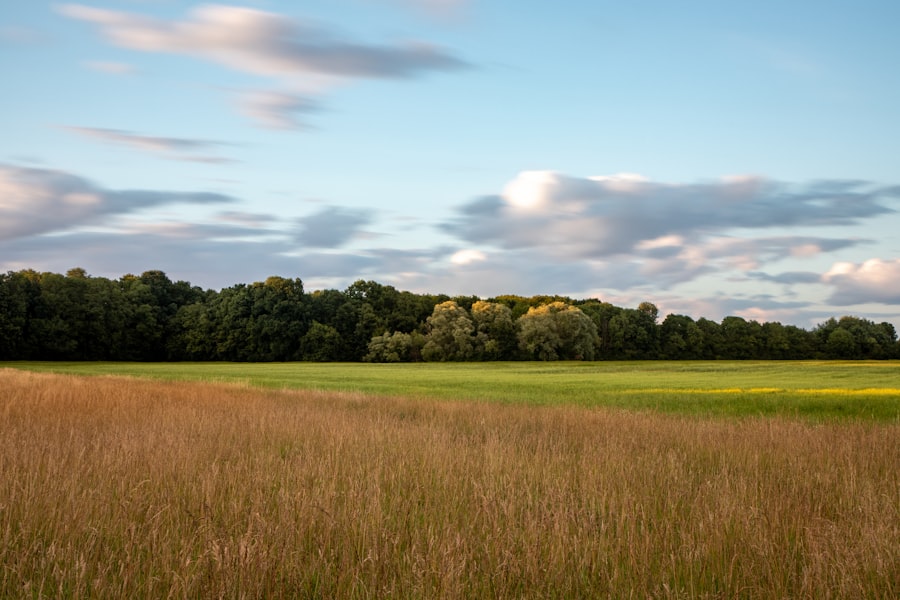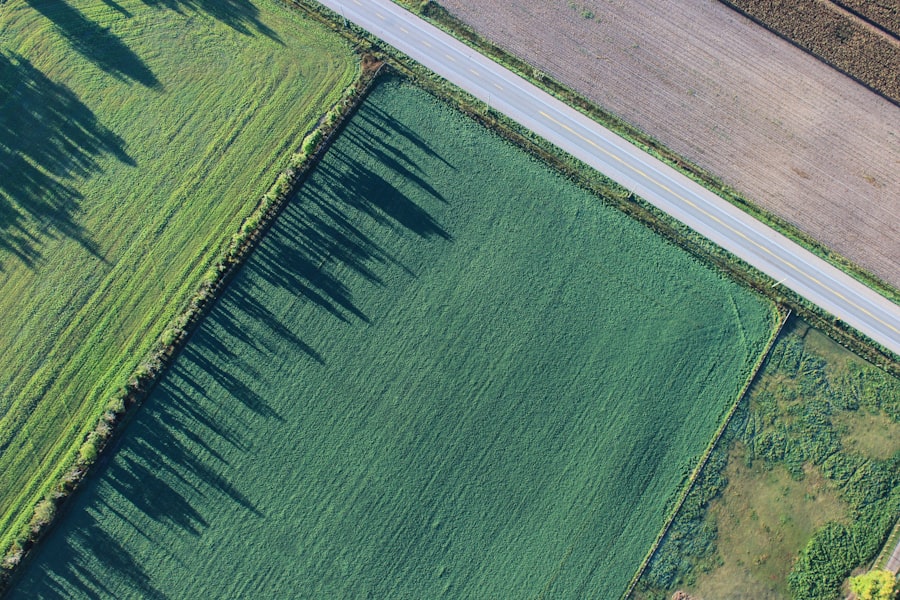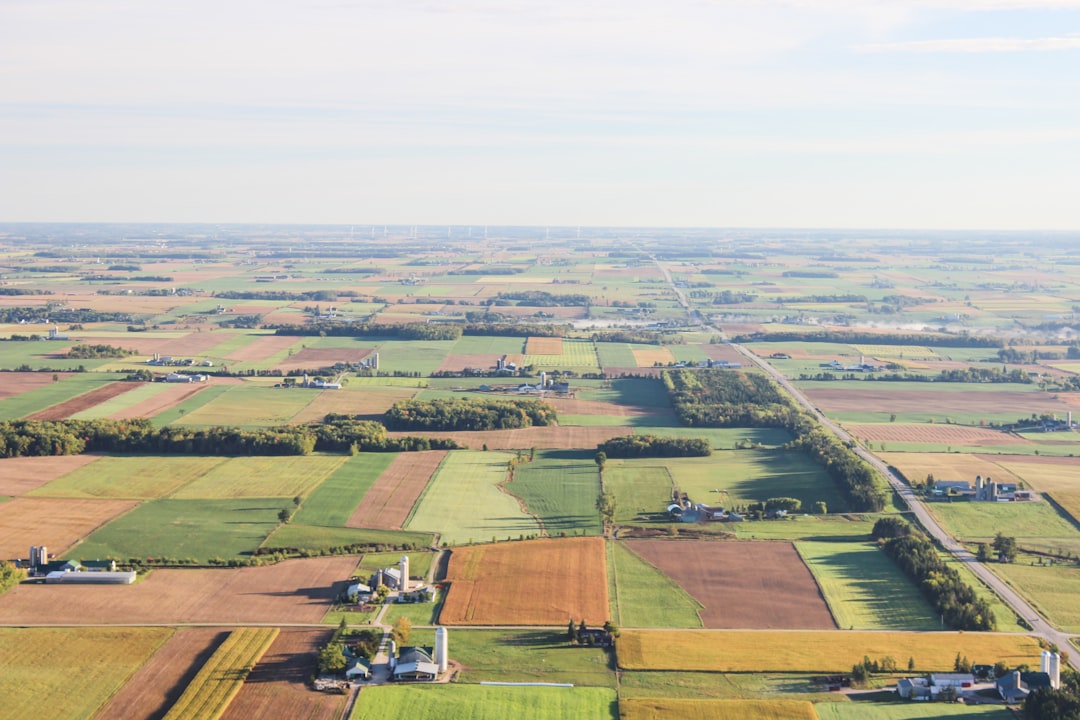In recent years, Bill Gates has made headlines not only for his philanthropic endeavors but also for his significant investments in farmland across the United States. With a portfolio that reportedly includes over 242,000 acres of agricultural land, Gates has positioned himself as one of the largest private owners of farmland in the country. This strategic move has raised eyebrows and sparked discussions about the motivations behind such a substantial investment.
While some view it as a mere financial gamble, others see it as a calculated bet on the future of food production and sustainability. Gates’ interest in farmland is not solely driven by profit; it is deeply intertwined with his commitment to addressing global challenges such as food security and climate change. By investing in agricultural land, he aims to influence farming practices and promote sustainable methods that can yield better results for both the environment and society.
This investment reflects a broader trend among billionaires who are increasingly recognizing the importance of agriculture in the face of growing global challenges.
Key Takeaways
- Bill Gates’ investment in farmland reflects a growing trend among billionaires to diversify their portfolios.
- Sustainable agriculture can help reduce greenhouse gas emissions and mitigate the effects of climate change.
- Bill Gates’ farmland investment has the potential to positively impact climate change through sustainable farming practices.
- Sustainable agriculture offers benefits such as soil conservation, water efficiency, and biodiversity preservation in the fight against climate change.
- The billionaire’s investment in farmland highlights the importance of private sector involvement in sustainable agriculture for long-term sustainability.
Bill Gates’ investment in sustainable agriculture
Bill Gates has long been an advocate for sustainable agriculture, believing that innovative farming practices can help alleviate poverty and hunger while also protecting the planet. His investments in farmland are accompanied by a vision for transforming traditional agricultural methods into more sustainable ones. By focusing on regenerative practices, Gates aims to enhance soil health, increase biodiversity, and reduce reliance on chemical inputs that can harm ecosystems.
Through his investment strategy, Gates has sought to support initiatives that promote sustainable farming techniques, such as crop rotation, cover cropping, and agroforestry. These methods not only improve yields but also contribute to carbon sequestration, helping to mitigate climate change. By backing projects that prioritize sustainability, Gates hopes to set a precedent for other investors and farmers to follow suit, ultimately leading to a more resilient agricultural system.
The potential impact of Bill Gates’ farmland investment on climate change

The implications of Bill Gates’ farmland investment extend far beyond financial returns; they hold significant potential for addressing climate change. Agriculture is a major contributor to greenhouse gas emissions, accounting for approximately 10-12% of total emissions globally. By investing in sustainable farming practices, Gates aims to reduce the carbon footprint of agriculture and promote practices that sequester carbon in the soil.
Moreover, Gates’ investment could catalyze a shift in how agriculture is perceived and practiced. As more farmers adopt sustainable methods, the cumulative effect could lead to a substantial reduction in emissions from the agricultural sector. This transformation is crucial in the fight against climate change, as it aligns with global efforts to achieve net-zero emissions by mid-century.
Gates’ influence and resources could help accelerate this transition, making sustainable agriculture a viable option for farmers worldwide.
The benefits of sustainable agriculture in combating climate change
| Benefits of Sustainable Agriculture in Combating Climate Change |
|---|
| 1. Reduced greenhouse gas emissions |
| 2. Carbon sequestration in soil |
| 3. Preservation of biodiversity |
| 4. Improved soil health and fertility |
| 5. Water conservation and reduced pollution |
| 6. Resilience to extreme weather events |
Sustainable agriculture offers numerous benefits that extend beyond environmental protection. By prioritizing practices that enhance soil health and biodiversity, sustainable farming can lead to increased resilience against climate-related shocks such as droughts and floods. Healthier soils retain moisture better and are more capable of supporting diverse crops, which can help stabilize food production in the face of changing weather patterns.
Additionally, sustainable agriculture can improve food security by increasing local food production and reducing dependence on imported goods. By investing in local farming systems that prioritize sustainability, communities can become more self-sufficient and less vulnerable to global supply chain disruptions. This approach not only addresses immediate food needs but also contributes to long-term economic stability and environmental health.
The significance of a billionaire’s investment in farmland
The significance of Bill Gates’ investment in farmland cannot be overstated. As one of the wealthiest individuals in the world, his financial decisions carry weight and influence within the agricultural sector. When a billionaire like Gates invests heavily in farmland, it sends a powerful message about the importance of agriculture in addressing global challenges such as climate change and food security.
Moreover, Gates’ involvement in agriculture may inspire other wealthy individuals and organizations to follow suit. His commitment to sustainable practices could encourage a wave of investments aimed at transforming the agricultural landscape. This shift could lead to increased funding for research and development of innovative farming techniques, ultimately benefiting farmers and consumers alike.
The challenges and opportunities of sustainable agriculture

While the potential benefits of sustainable agriculture are significant, there are also challenges that must be addressed. Transitioning from conventional farming practices to more sustainable methods can be daunting for many farmers, particularly those who have relied on traditional techniques for generations. Financial constraints, lack of access to resources, and limited knowledge about sustainable practices can hinder this transition.
However, these challenges also present opportunities for innovation and collaboration within the agricultural sector. By investing in education and training programs for farmers, organizations can help facilitate the adoption of sustainable practices. Additionally, partnerships between private investors, governments, and non-profits can create supportive ecosystems that empower farmers to make the necessary changes.
The role of technology in sustainable farming practices
Technology plays a crucial role in advancing sustainable agriculture by providing farmers with tools and resources that enhance productivity while minimizing environmental impact. Precision agriculture, for example, utilizes data analytics and satellite imagery to optimize planting schedules, irrigation practices, and pest management strategies. This approach allows farmers to make informed decisions that reduce waste and improve efficiency.
Furthermore, advancements in biotechnology have led to the development of crops that are more resilient to climate stressors such as drought or disease. These innovations can help farmers adapt to changing conditions while maintaining high yields. By embracing technology, farmers can not only improve their own operations but also contribute to broader efforts aimed at combating climate change.
The potential for innovation in sustainable agriculture
The future of sustainable agriculture is ripe with potential for innovation. As awareness of environmental issues grows, researchers and entrepreneurs are increasingly focused on developing new solutions that address the challenges facing the agricultural sector. From vertical farming systems that maximize space utilization in urban areas to aquaponics that combine fish farming with crop production, innovative approaches are emerging that could revolutionize food production.
Moreover, the integration of artificial intelligence and machine learning into farming practices holds promise for optimizing resource use and improving crop management.
As innovation continues to flourish within the realm of sustainable agriculture, it has the potential to reshape how food is produced and consumed globally.
The importance of investing in farmland for long-term sustainability
Investing in farmland is not just a financial decision; it is a commitment to long-term sustainability. As global populations continue to grow and climate change poses increasing threats to food security, securing agricultural land becomes paramount. Farmland investments can provide stability and resilience against economic fluctuations while also contributing to environmental health.
Furthermore, investing in farmland allows individuals and organizations to play an active role in shaping the future of agriculture. By supporting sustainable practices and innovative solutions, investors can help create a more equitable food system that benefits both producers and consumers. This long-term perspective is essential for ensuring that future generations have access to healthy food produced in harmony with the environment.
The potential risks and rewards of farmland investment
Like any investment, farmland comes with its own set of risks and rewards. On one hand, investing in agricultural land can yield significant returns as demand for food continues to rise globally. Additionally, farmland often appreciates over time, making it an attractive asset for long-term investors.
However, there are also risks associated with farmland investment that must be considered. Climate change poses a significant threat to agricultural productivity, with unpredictable weather patterns potentially impacting crop yields. Furthermore, fluctuations in commodity prices can affect profitability for farmers and investors alike.
Navigating these risks requires careful planning and a commitment to sustainable practices that enhance resilience against external shocks.
The implications of Bill Gates’ investment in farmland for the future of agriculture and climate change
Bill Gates’ investment in farmland carries profound implications for the future of agriculture and climate change mitigation efforts. By prioritizing sustainable practices and innovative solutions, Gates is not only influencing farming methods but also setting a precedent for other investors to follow suit. His commitment to addressing global challenges through agriculture could inspire a new wave of investments aimed at creating a more sustainable food system.
As more individuals recognize the importance of agriculture in combating climate change, there is potential for transformative change within the sector. Gates’ involvement serves as a reminder that addressing complex global issues requires collaboration between various stakeholders—governments, private investors, farmers, and consumers alike. Ultimately, his investment may pave the way for a more resilient agricultural landscape capable of meeting the needs of future generations while safeguarding the planet’s resources.
Bill Gates’ significant investment in farmland has sparked widespread interest and speculation about his motives. One perspective suggests that Gates is focusing on sustainable agriculture and food security, aligning with his broader philanthropic goals. An article on How Wealth Grows delves into the reasons behind Gates’ farmland acquisitions, exploring the potential benefits of such investments in terms of environmental sustainability and innovation in agricultural practices. For a deeper understanding of this topic, you can read more in the article available at howwealthgrows.
com/’>How Wealth Grows.
WATCH THIS! 🫣Why Wall Street Is Buying Up America’s Farmland (And Why It Should Terrify You)
FAQs
What is the article “Why Bill Gates is Buying Farmland” about?
The article discusses the recent trend of Bill Gates and other wealthy individuals purchasing large amounts of farmland and the potential reasons behind this investment.
Why is Bill Gates buying farmland?
Bill Gates has been investing in farmland as a way to diversify his portfolio and to support sustainable agriculture practices. He has also expressed interest in using the farmland for research and development in the agricultural sector.
How much farmland has Bill Gates purchased?
Bill Gates’ investment firm, Cascade Investment, has acquired over 269,000 acres of farmland across 18 states in the United States.
What are the potential implications of Bill Gates’ farmland purchases?
Some speculate that Gates’ farmland purchases could have implications for the agricultural industry, food production, and land use policies. It could also impact small farmers and rural communities.
Is Bill Gates the only wealthy individual buying farmland?
No, there are other wealthy individuals and investment firms that have been purchasing farmland as an investment strategy. This trend has been observed among various high-net-worth individuals and institutional investors.
